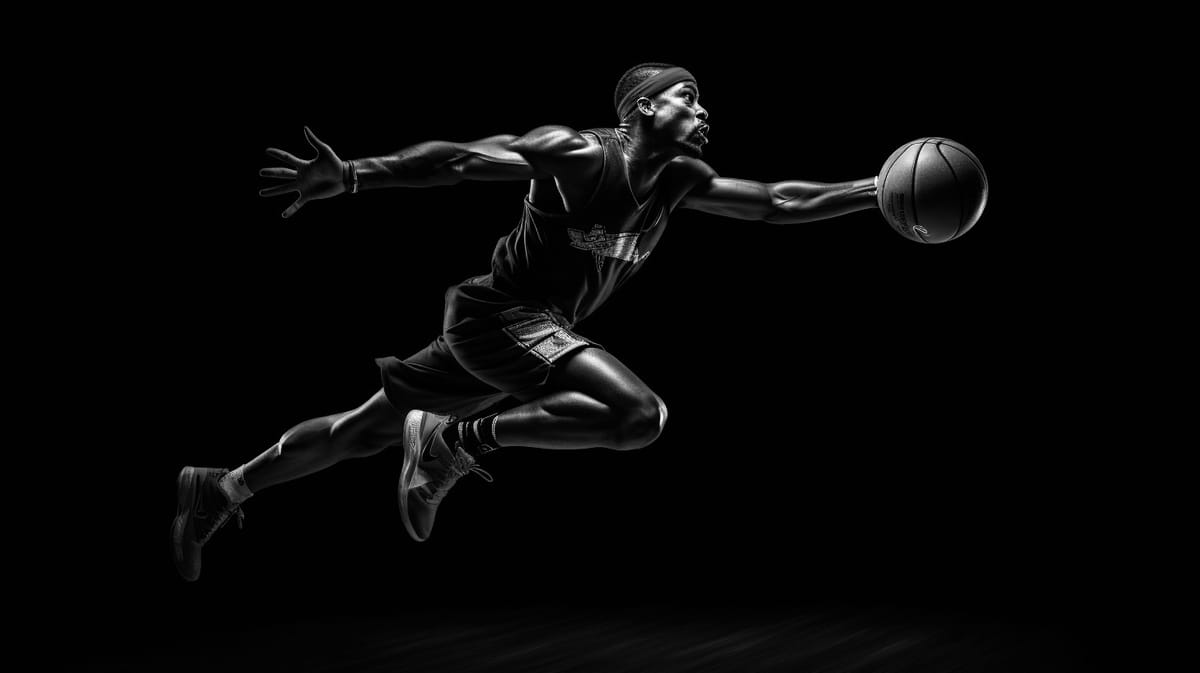The Silent Impact of Mental Fatigue on Basketball: A Guide for Coaches and Athletes
Basketball, a game of swift agility and split-second decisions, often has outcomes determined not just by physical performance but by cognitive sharpness. Recent research uncovers a subtle yet potent adversary on the court: mental fatigue.

Basketball, a game of swift agility and split-second decisions, often has outcomes determined not just by physical performance but by cognitive sharpness. Recent research uncovers a subtle yet potent adversary on the court: mental fatigue. In this article, we explore how cognitive weariness can subtly sabotage shooting performance, offering coaches and athletes actionable insights to stay ahead of the game.
The Study at a Glance
Backdrop: The realm of sports science has long been intrigued by the interplay between the mind and athletic performance. While physical fatigue and its impacts are well-charted territories, the ramifications of mental fatigue remain relatively unexplored.
Objective: This study sought to unravel the mystery of mental fatigue's influence on a critical aspect of basketball: shooting accuracy.
Methodology: Fifteen elite male NCAA Division 1 collegiate basketball players were subjected to a rigorous three-day testing regimen. Each day, they encountered a different condition:
- Control: A neutral scenario with no added cognitive load.
- Stroop: A task known to induce mental fatigue, challenging their cognitive faculties.
- Film: A prolonged sport-specific film session, mirroring the strategic preparations before actual games.
Key Findings Simplified
Shooting Under Mental Strain: The data revealed that players, when mentally fatigued, were less accurate in their shooting. This decline was most pronounced in the Stroop condition, indicating the tangible effects of cognitive exhaustion.
The Unexpected Culprit - Film Sessions: While film sessions are integral for strategizing and player development, they aren't benign from a cognitive perspective. Sessions stretching beyond 30 minutes were found to be mentally taxing, leading to a decline in subsequent shooting performance.
Breakdown of Results
Shots Made in 4 Minutes (MAKE4MIN):
Stroop Condition vs. Control:
- There was a decrease of 5.5 shots made in 4 minutes.
- This equates to an 11.11% decrease in shots made when players underwent the Stroop condition compared to the Control.
Film Condition vs. Control:
- There was a decrease of 4.4 shots made in 4 minutes.
- This represents an 8.89% decrease in shots made after enduring a prolonged film session compared to the Control.
2. Shots Missed in 4 Minutes (MISS4MIN):
Stroop Condition vs. Control:
- There was an increase of 3.6 shots missed in 4 minutes.
- This leads to a 13.19% increase in shots missed under the Stroop condition relative to the Control.
Film Condition vs. Control:
- There was an increase of 3.6 shots missed in 4 minutes.
- This corresponds to a 13.19% increase in shots missed after the Film session compared to the Control.
What This Means for Coaches and Athletes
For Coaches:
- Rethink Pre-game Sessions: While strategic, film sessions, if too lengthy, can inadvertently hamper player performance. Consider breaking them into shorter, more focused segments.
- Training Regimen Tweaks: Introduce cognitive recovery exercises in training routines. Just as players cool down post physical exertion, a mental cool-down can be beneficial.
For Athletes:
- Cognitive Training: Just as you have a gym routine, consider cognitive training to build cognitive resilience.
- Open Communication: If you're feeling mentally overwhelmed, it's crucial to convey this to your coach. It's a genuine factor that can influence on-court performance.
Key Takeaways
- Mental fatigue, while intangible, has tangible repercussions on court performance.
- Activities considered non-exhaustive, like film sessions, can be covert sources of cognitive drain.
- Addressing mental fatigue isn't just the realm of sports psychologists; it's a team effort, encompassing coaches, athletes, and support staff.
Conclusion
In the dynamic arena of basketball, where victories are often carved out by razor-thin margins, understanding and addressing mental fatigue can be the secret sauce for success. As science continues to unravel the intricate tapestry of mind and performance, it's clear: the future of basketball training will be as much about mental sharpness as physical agility.
